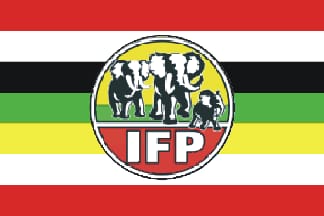As parties race for a deal before the newly elected parliament sits on Friday, South Africa’s Inkatha Freedom Party on Wednesday said it would join a unity government with the ruling African National Congress and the Democratic Alliance.
The ANC, which lost its majority in May’s election for the first time since it took power at the end of apartheid 30 years ago, has been talking to a broad spectrum of parties to try to set up a government of national unity.
Business leaders and financial markets would welcome a deal between the ANC and the DA, but many ANC supporters strongly oppose this option because of the DA’s reputation as a defender of white privilege, which it denies.
The final composition of the government has not yet been announced, but the comments by IFP leader Velenkosini Hlabisa gave the most precise picture of how negotiations are shaping up.
“We will participate in the government of national unity for the sake of our country and for the sake of our people, who want life to continue with a stable government that will address their challenges,” Hlabisa told reporters at a news conference.
The ANC and the DA did not immediately reply to requests for comment.
The ANC remains the largest party with 159 seats in the 400-member national legislature. Its nearest rivals are the pro-business, white-led DA with 87 seats; the populist uMkhonto we Sizwe led by former President Jacob Zuma, with 58; and the hard-left Economic Freedom Fighters with 39. The IFP has 17 seats.
If the DA is included in government, it means that the EFF will likely not be.
The EFF, which wants to nationalise banks and mines, has said it will opt out if the unity government includes the DA.
Parties have been rushing to reach an agreement before Friday when the National Assembly will meet to elect its speaker, deputy speaker and the country’s president.
President Cyril Ramaphosa is highly likely to be reelected since the ANC has the largest number of seats, but key positions such as speaker of parliament and deputy president are the subject of behind-the-scenes negotiations.
Zuma’s MK party, despite coming a surprisingly strong third in the election, approached the constitutional court to try to block the National Assembly from sitting on Friday, alleging vote-rigging although the electoral commission and other parties said the election was free and fair.












